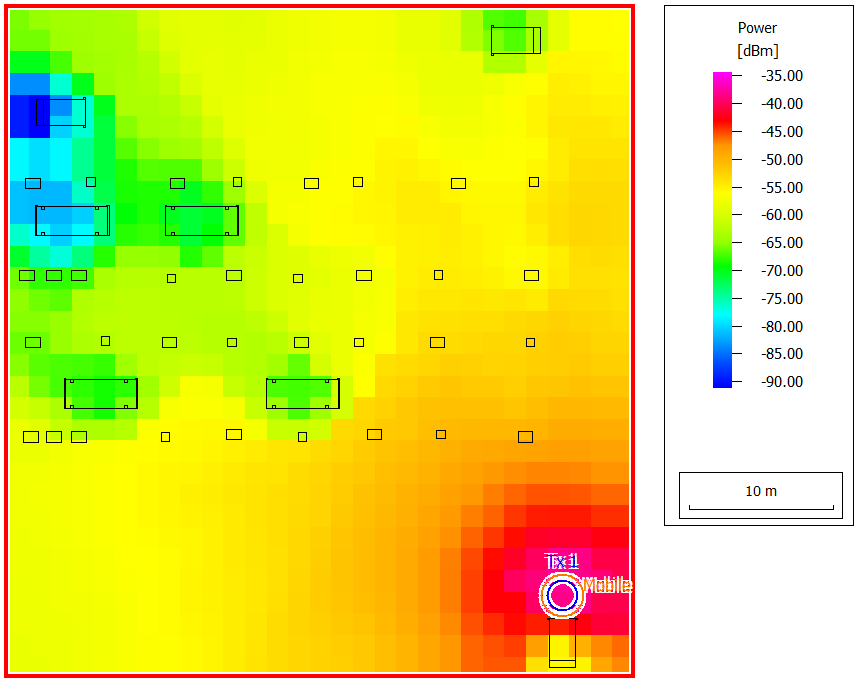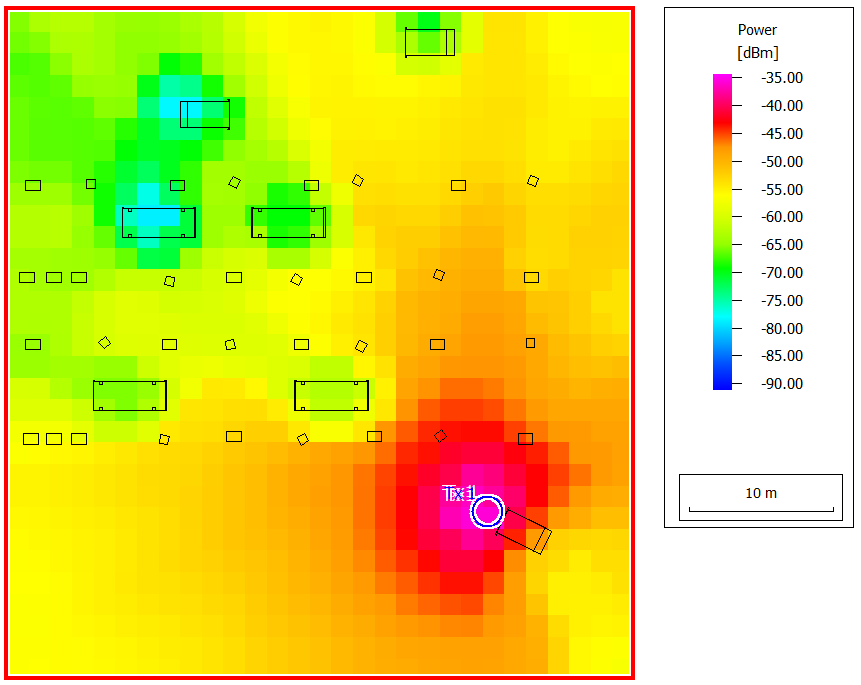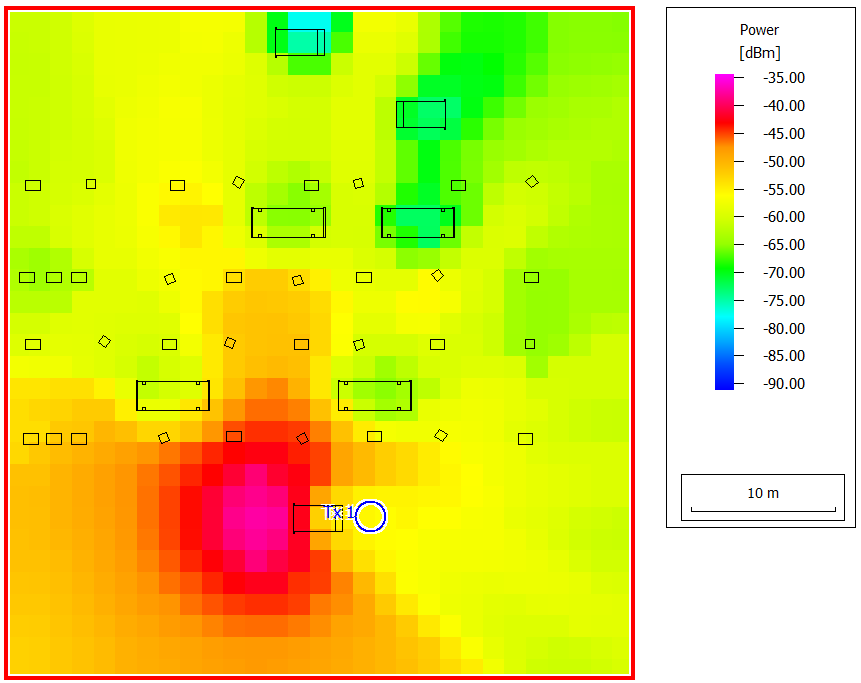SRT Time-Variant
Compute radio coverage in a factory hall using the standard ray tracing model.
Model Type
This model consists of rotating robots, moving vehicles, and a mobile transmitter is mounted on one of the vehicles. The vehicle is driving through the scenario.
Sites and Antennas
The transmitter is on the vehicle at a height of 1.5 m. The antenna pattern used is omnidirectional. The frequency used for the propagation is 2.4 GHz.
Computational Method
This project uses the 3D ray tracing (SRT) model (without preprocessed data) method to determine propagation paths and the received power for each receiver signal. The method considers reflections and diffraction.
Results
The results are computed for 6-time samples from 0 to 25 seconds with five-second intervals. The radio coverage in the hall with moving cars and rotating robots can be observed in the time-dependent results.


